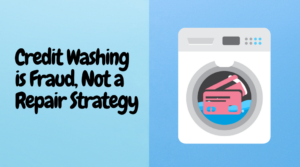
Capital One is backing away from an invasive debt collection policy after it caused an uproar with cardholders.
The credit card company recently updated its contract to include terms that specify “we may contact you in any manner we choose” and that such contacts can include calls, emails, texts, faxes or a “personal visit.”
But the update gets even creepier…It says “we may modify or suppress caller ID and similar services and identify ourselves on these services in any manner we choose.”
Basically Capital One is saying it can trick you into answering the phone by using what looks like a local area code and phone number or even disguising itself as any organization or company it’s not. The official practice is called “non-harmful spoofing” and is legal.
Typically employed by telemarketers, non-harmful spoofing is not something reputable companies typically practice.
Capital One Backing Away from Language
Capital One’s spokesperson, Pam Girardo, said the company is reviewing its term after a Feb. 17 Los Angeles Times article caused a controversy.
With limited exceptions, “Capital One does not visit our cardholders, nor do we send debt collectors to their homes or work,” Girardo said in an email. “We are reviewing the language because we do not want to create any unnecessary insecurity among our customers.”
As for caller ID, “We want our phone calls to display as Capital One on caller ID and that’s the way they are programmed. However, some local phone exchanges may display our number differently,” Girardo said, adding that the company wants customers to be aware of that.
Girardo said Capital One only visits someone’s home “as a last resort” in the case of repossession of certain purchases — such as snow mobiles and personal watercraft — that are pledged as collateral for secured loans. The company is considering creating a separate card category for these items, to avoid having the language apply to its general cardholder base, she said.
Excuse me! Did the Capital One spokesperson just say “repossession?” Yes, you read it right – repossession.
Right to repossess
Capital One along with many other credit card issuers include a clause in the contract that gives them the right to repossess items purchased with the card. The lender can seize items you purchased if you don’t finish paying for them.
These types of card agreements give the lender a “security interest” in purchased items with the exception of secured credit cards where cardholders put a deposit upfront for a credit line. Even if a cardholder files bankruptcy the right to repossess remains in effect.
Privacy Rights
The right for Capital One to contact cardholders anytime and anyplace may be a violation of consumer protection laws in some states. Numerous states, including California and Texas have strict consumer protection laws that restrict creditors from calling debtors at work or at inconvenient times.
Some of the terms of Capital One’s contract conflict with state and federal consumer protection laws that limit the actions of creditors and their debt collectors. While original creditors are not subject to the Fair Debt Collection Practices Act, there are still limits on what they can do to collect a debt.
Capital One’s policies can be considered harassment which is against the law in most states.
















